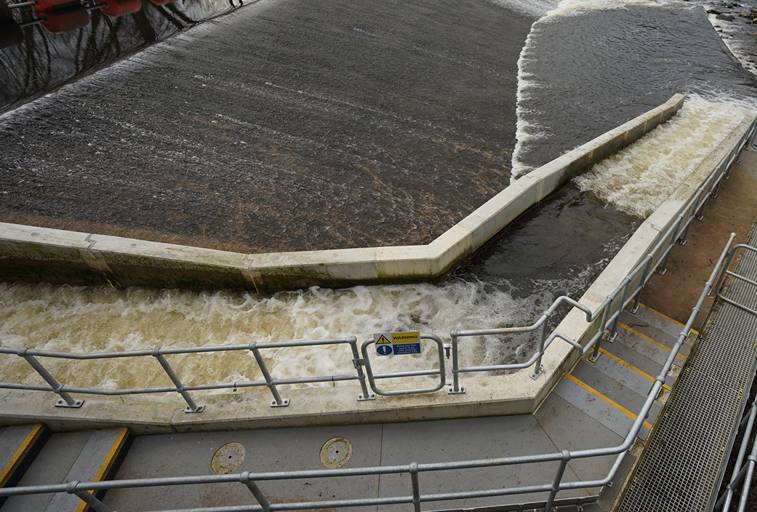River Don fish pass success shared with Environment Agency

2/7/2023
Yorkshire Water hosted delegates from the Environment Agency (EA) in Sheffield to share the success of the fish pass programme on the river Don.
The reconnection of the river by bypassing manmade obstacles, such as weirs, has led to the return of salmon to Sheffield for the first time in 200 years.
EA staff in Yorkshire are a partner in the work with Yorkshire Water, the Rivers Trust and Ward and Burke but the project was showcased to their colleagues from across the country who came to see the completed Larinier fish pass at Jordans weir within Yorkshire Water’s Blackburn Meadows wastewater treatment works. The group then visited Niagara Weir, where Yorkshire Water and Ward and Burke are currently building a further fish pass to allow salmon to continue their journey upstream.
Dr Ben Gillespie, river resilience specialist at Yorkshire Water said: “The partnership approach between the Environment Agency and local organisations including the Don Catchment Rivers Trust has been a successful one. The passes installed and weirs removed have led to salmon returning to parts of the Don they have not been seen in for more than 200 years. These projects are also of benefit to general river health which adds value to the surroundings of the local communities.
“We’re really pleased to have been able to welcome Environment Agency staff from outside the region to share this success, showcase the completed fish passes, how they are constructed and to outline how important partnership working has been throughout this project. We hope the success on the Don will now be replicated elsewhere in the country.”
The fish passes work by using steel Larinier baffles to create turbulent water and resting places to allow the fish to make their way past the weirs.
Ed Shaw, managing director of the Don Catchment Rivers Trust, said: “Not only is the return of salmon something to celebrate in its own right, but it also has powerful symbolic value, getting across to people that the river is no longer grossly polluted and is in fact full of life.”
Katie Burnham, Environment Agency fisheries technical officer, said: “Weirs are a legacy of our industrial heritage, but they can block the natural free movement of fish, resulting in a loss of ecological diversity. Thanks to the hard work of our partners, we have seen great success in salmon returning to Sheffield. We are pleased to continue to support with projects focused on tackling some of the remaining barriers upstream to open even more of the river system for fish.”
